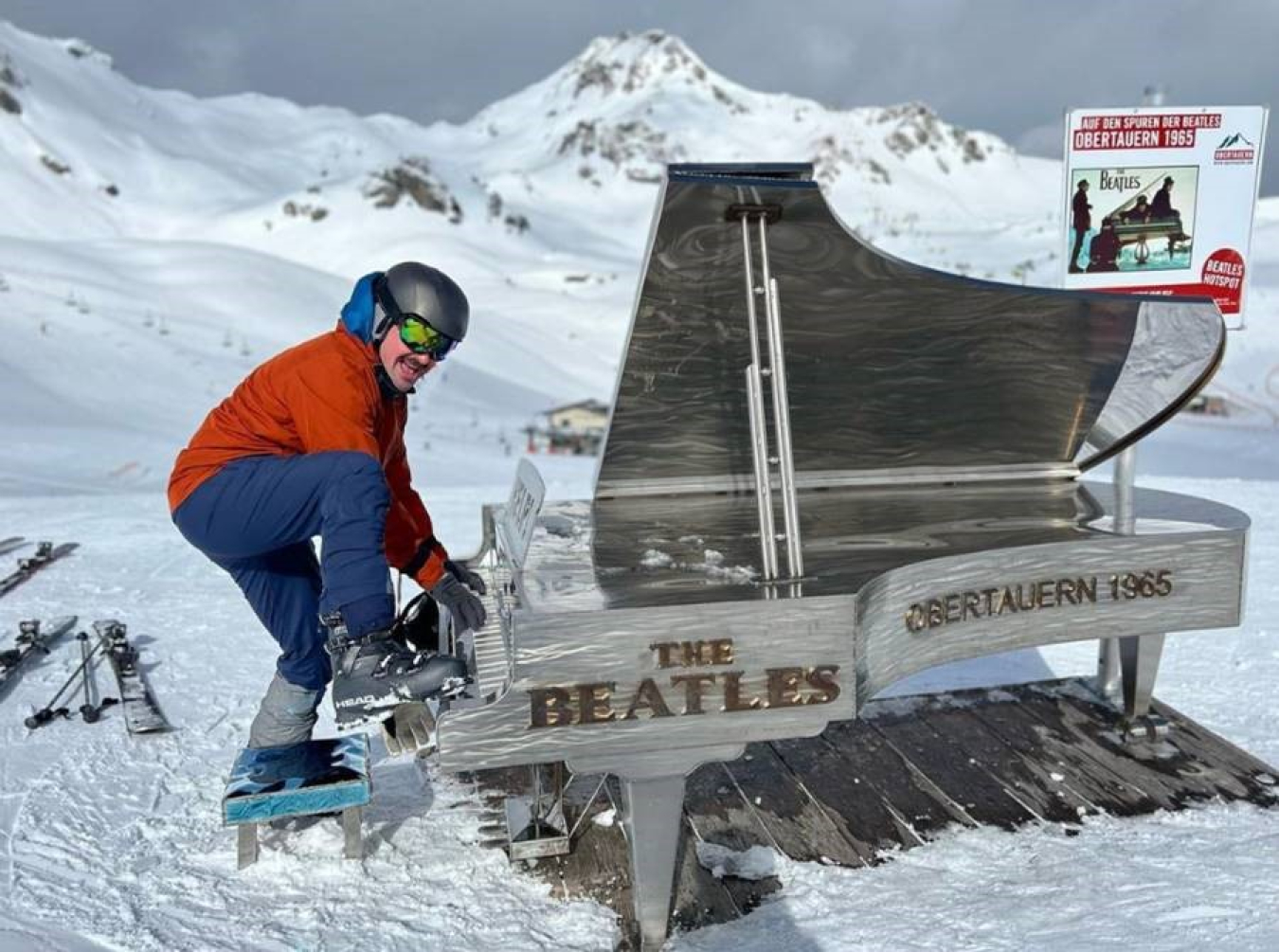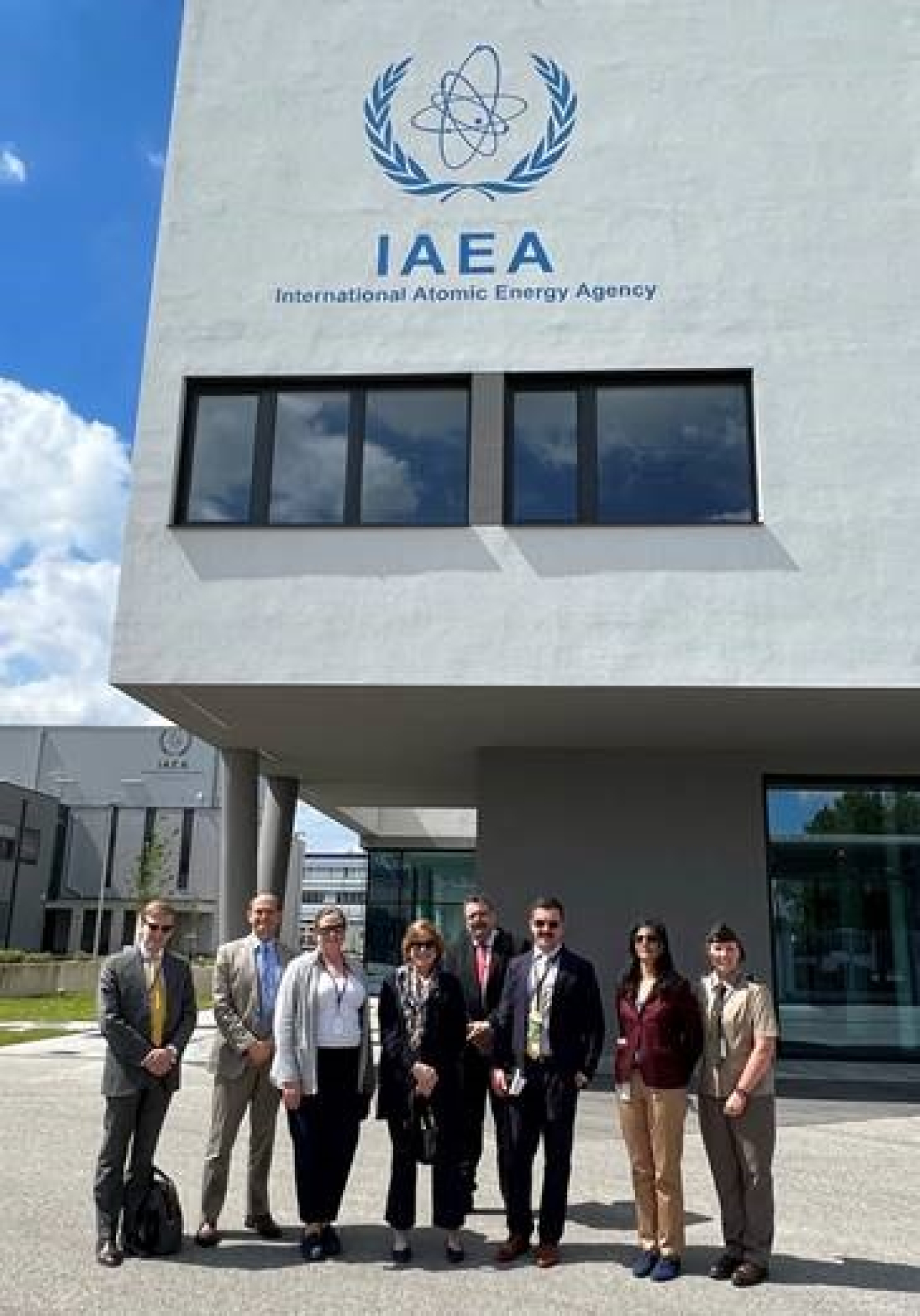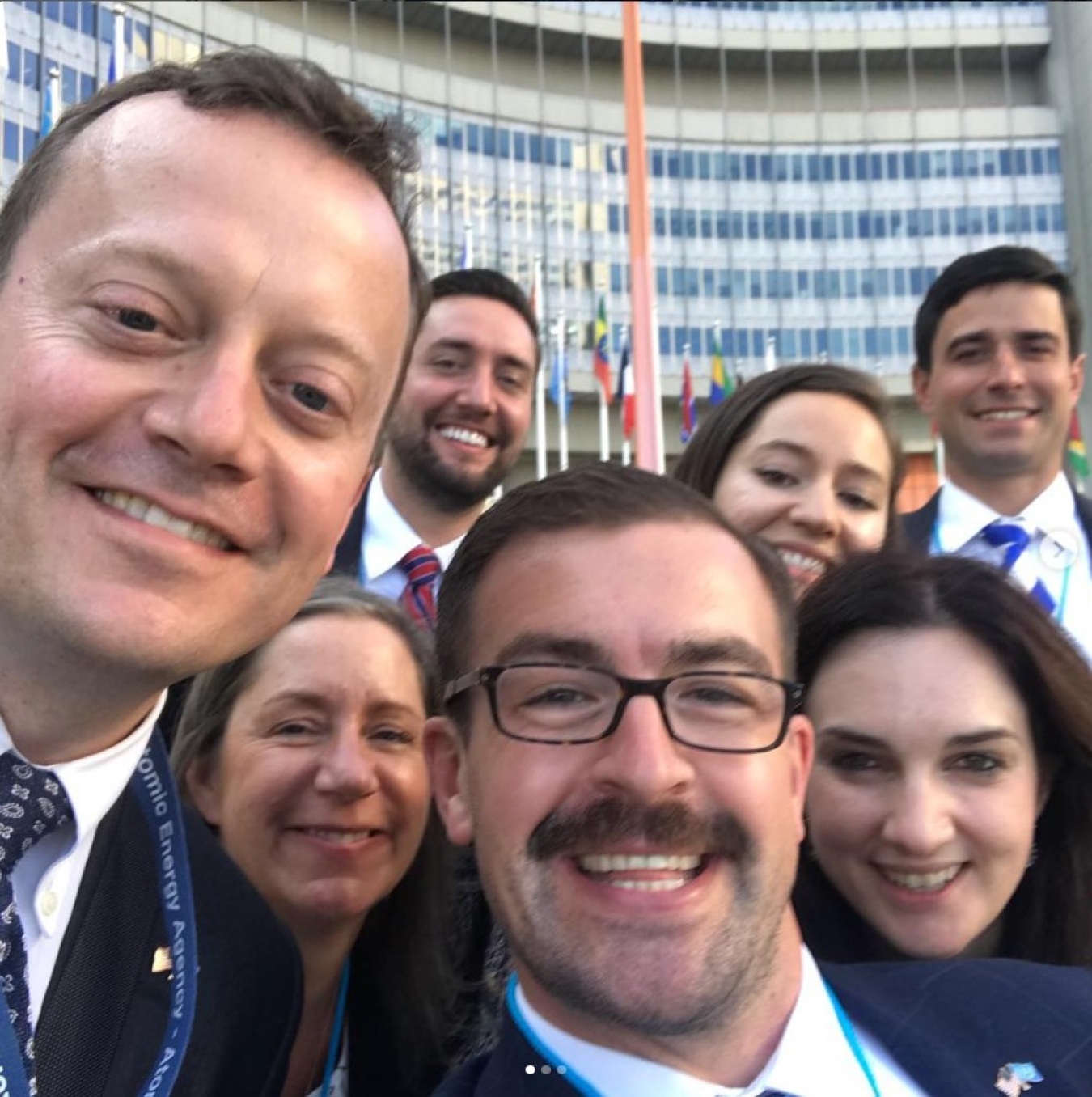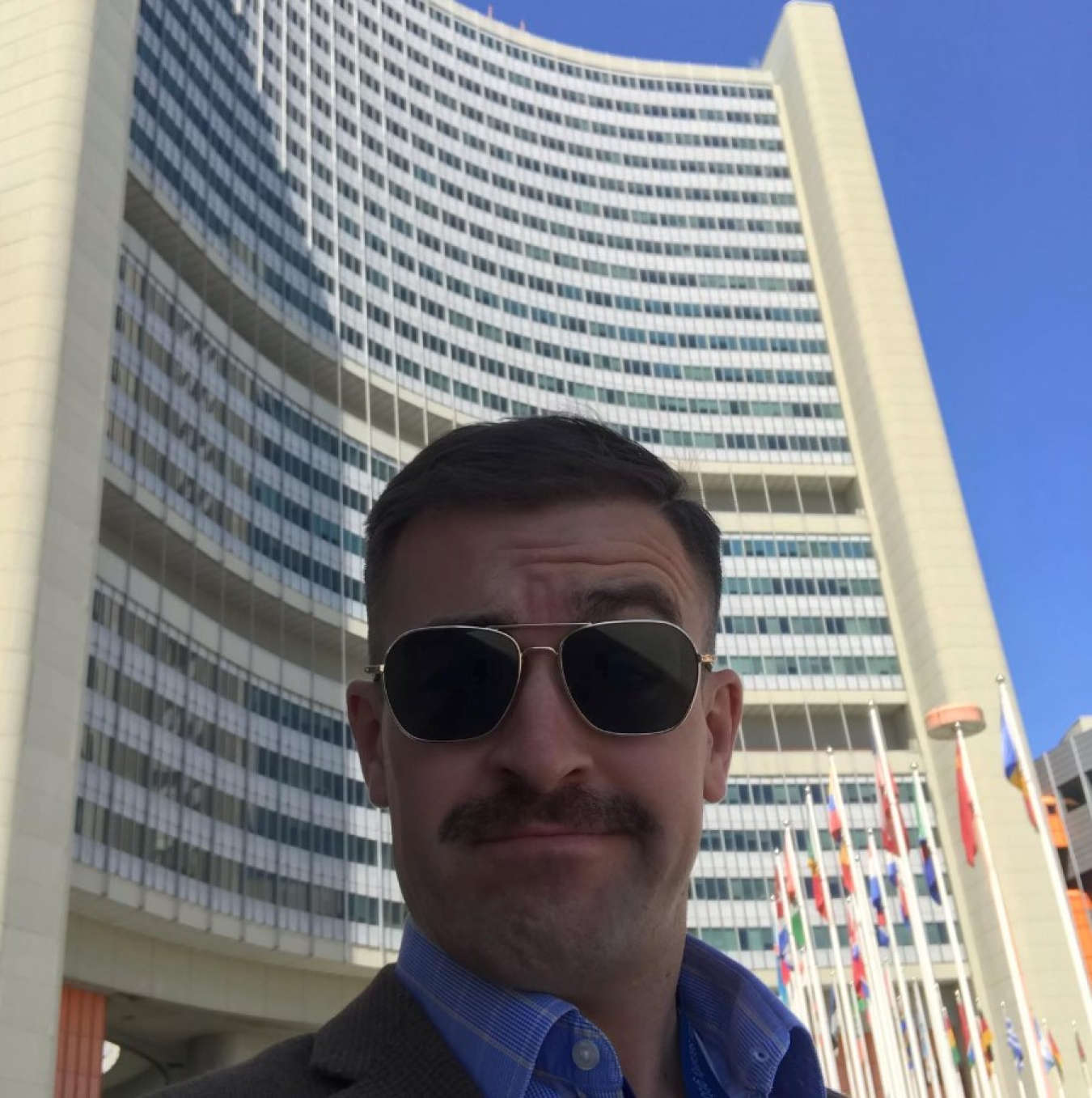Andy Hallock, who serves as the Nuclear Security Attaché to the U.S. Mission to International Organizations in Vienna. Andy has supported nearly every nonproliferation program we have at NNSA, and he co-founded Austria’s first inclusive rugby team!
National Nuclear Security Administration
June 26, 2023

How do you support NNSA?
I currently serve as the Nuclear Security Attaché to the U.S. Mission to International Organizations in Vienna. In that role I support NNSA and the entire U.S. Government in executing its nuclear security goals and priorities at the International Atomic Energy Agency. This includes promoting global efforts to strengthen nuclear security around the world and providing the IAEA with the tools and resources necessary to fulfil its mandate and role as the central coordinator for nuclear security.
What was your personal and academic background and how has that shaped you? What led you to a career in nuclear security?
I got my Bachelor’s in international studies from the University of Washington and a Masters in Security Policy from the George Washington University. After undergrad I was going to go to law school – but having spent two years as a paralegal I decided the world could do with one less lawyer, and instead joined the Peace Corps for two years in Ukraine. After Ukraine I realized international affairs was where I belonged, and was eager to apply my Ukrainian and Russian language skills if I could. Partway through graduate school, two of my UW classmates were discussing the need for a research assistant at one of the DOE labs, and my name was suggested. Never underestimate what your network can do for you. These particular friends and I had taken a number of DOE funded nonproliferation courses at UW. With their help and encouragement, I was brought into the DOE family. I started out doing research on safeguards and developing tools to analyze whether a state could potentially be pursuing a nuclear weapon.
Since then, I have supported nearly every nonproliferation program at NNSA. NNSA’s mission continues to inspire as it brings together science, national security, and diplomacy to address some of the most pressing challenges of our time.
What is your proudest accomplishment while working at (conducting research sponsored by) NNSA?
I’ve spend most of my NNSA career working on NNSA’s more international projects and missions. I spent a good chunk of that time managing NNSA’s radiological security efforts in Russia and Belarus. I got to manage that portfolio right before and after Russia’s initial invasion of Ukraine and seizure of Crimea. Those were incredibly difficult times owing to a more hostile and less cooperative partner, as well as a changing domestic landscape that limited NNSA’s ability to implement its mission as planned. I was able to develop and hone my diplomacy skills to resolve issues and make some last minute progress before this phase of our nuclear security engagement with Russia ended.
Those diplomacy skills have served me well in the past few years in Vienna. In particular it has enabled me to build coalitions amongst allies and non-traditional partners. To develop broad support for U.S. priorities and deliver on significant objectives. In particular, during the first review conference of States parties to the Convention on the Physical Protection of Nuclear Material and its Amendment, I was part of a team that helped deliver on a successful RevCon. One of the U.S. key objectives was securing a commitment for a follow on RevCon. Being blocked from including this in the Conference’s outcome document, we had to address this through shoe-leather, door-to-door diplomacy. I developed a plan, sold our Ambassador on it, and with my immediate colleague reached out to nearly every IAEA Member State. On day two of a week-long conference we learned that this key objective of the United States had been met, cementing a tradition of regularly gathering the international community to address the nuclear security legal framework and its adequacy. More personally, this resulted in the development of many invaluable professional contacts that have enabled me to continually to be successful, especially during challenging times in multilateral diplomacy.
What advice would you have for anyone interested in a career in nuclear security?
I recall the advice I got from former Deputy Administrator Nielle Miller, which I will paraphrase liberally. Take advantage of the opportunities, especially early in your career when they are less demands on your personal time, to take on big projects or special tasks. Public service is never about the financial compensation or reward. Rather, it’s the opportunity to engage on issues that only the public sector takes on. Jump at those opportunities and push yourself, that is the only way to grow and develop the skill and tools to succeed at your next position.
Again, do not underestimate the value of your network. Your peers and colleagues are key factors that will enable your career to be successful. That goes both ways. If you see a job well done, be the first to call your colleague out on their success and highlight their contribution. When faced with a problem, be confident you aren’t the first person to have faced something like that, and use your colleagues and mentors to provide advice and insight. When in doubt – always phone a friend.


Why do you think diversity and inclusion is important in the workplace?
As our Administrator says, every decision is a diversity decision. I agree and have seen that to be true. Diversity isn’t a “nice to have” or a box checking exercise. Diversity is essential to our success. Just as none of us is an island, we can’t complete our mission successfully doing it alone – be that individually or as a country. Essential in that is developing the teams to carry out the various aspects of our mission. That work benefits from a variety of ideas, experiences, personalities, and skillsets. We are not only as strong as our weakest link, our success is a reflection on the diversity of our teams and the value we place on that.
As I have experience firsthand in negotiations in Vienna, our effectiveness is directly related to diversity of our coalitions. This also makes our arguments, ideas, and outcomes more impactful as they represent a broad consensus and constellation of perspectives.
Tell us a little about finding your identity as a member of the LGBTQ+ community. How do you feel your experience has changed with time?
I think that the hardest part about coming out is being honest with yourself and patient with yourself. Coming out at 30 provided me a different perspective than others who embraced being part of the LGBTQ+ community earlier. What I have learned is that you can be whatever you want to be, and there is not one way to be gay (or bi or trans or otherwise queer). Be yourself – and don’t ever be anything but authentic. You can’t make everybody happy, or be friends with everyone – but you should make yourself happy.
What does Pride mean to you?
Pride is that moment when 8 year old me sees 43 year old me doing something that would have made him bright red with embarrassment or cowering with shame. It means being who you are, and 100 percent comfortable in that.
Tell us something interesting about yourself; what do you like to do for fun/downtime?
I had been in Vienna for a few years, and as the cycle of Vienna goes – your friends arrive and then return home. I decided I needed to make more friends, and not inside the bubble of the UN or diplomatic community. So with a rag tag bunch of guys, helped found Austria’s first inclusive rugby team. While I don’t endorse taking up rugby when you are 40, it has been a highlight of my time in Vienna and I’ve made some incredible friends. Rugby is a typically macho sport, and 8 year old me would have been too shy to play. However, standing on the pitch and seeing team after inclusive team was inspiring – sharing that with my two adorable nieces who came to cheer me on was even better.

